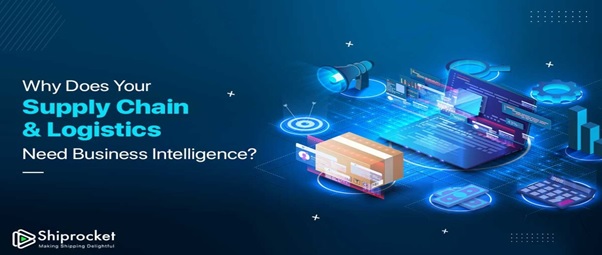Transport and logistics industries are continually confronted with new issues as a result of market globalisation and dynamic developments along the value chain. Logistics processes are becoming increasingly sophisticated as a result of these demands. In this industry, digitalisation is also becoming increasingly important. Some businesses still have some catching up to accomplish in terms of information technology development. Others want to make better use of existing data and are seeking for ways to examine it in a timely manner. It also became increasingly evident during the COVID-19 situation that digitization should be a top goal for all the organizations.
Customers of logistics service providers are also seeking more precise information, such as the location of their freight, warehouse stock levels, and the optimum transit route for the desired conveyance. Against this complex backdrop, solutions are needed that can be tailored to the specific needs of each industry sector – solutions that are currently more efficient today and may be improved further tomorrow.
Business intelligence is the process of gathering, evaluating, and visualising relevant data about the company’s operations.

Source: https://www.shiprocket.in/blog/business-intelligence-in-logistics/
Many logistics service providers’ main objective is to get things from point A to point B on schedule, efficiently, and at the lowest possible cost. There is a lot of rivalry and low margins in this sector. A lost customer can be as simple as a late delivery, a missing order, or excessive prices.This is why having access to information data – also known as business intelligence – regarding various transportation activities is critical. At the same time international competition is also putting pressure on companies in the transportation and logistics sector. Cost evaluations using existing data are essential to survive the cost. Existing transportation or storage areas must also be utilised economically in this context. Whether it’s regular or consolidated road transport, general cargo by water, rail wagon capacity utilisation, or regions in logistics centres, making the best use of resources ensures increased efficiency. Up-to-date information is essential as a foundation for quick and safe business decisions in any industry. It is critical to invest in industry-specific business intelligence in order to be able to convey this information as needed (BI).
Challenges can only be reliably mastered with the correct visualisation:
- Early on, identify and emphasise trouble areas
- Analyse the volume of transit and make the most use of it
- Show and plan the storage capacity
- Vehicle fleets must be managed and guided
- Determine costs and allocate them to the project
- Provide customers with tracking and tracing data
Companies in the transportation and logistics sector can successfully fulfil current and future requirements by using an industry-specific business intelligence solution.
- Transparency in pricing
- Overview of the utilisation rate (process mapping)
- Alternatives for management
- Interaction with customers , are the benefits to reap out in using BI tool for logistics planning and security
A logistics company can use business intelligence to gain insight into issues like transportation routes, pick-ups and drop-offs, load factor, expenses, turnover, orders, on-time performance, loading and unloading times (per driver), or CO2 emissions. Of course, this can also be used to store information about clients, journeys, vehicles, and drivers’ skill levels. This can also be made visually evident in real time via dynamic interactive dashboards. Delaying the start of transport data analysis is pointless for a logistics organisation. When it comes to route optimization and scheduling, this is especially true. It is preferable for these businesses to plan for the future today.
Dr Karpagavalli.G ,
Assistant Professor,
DSCE – MBA
